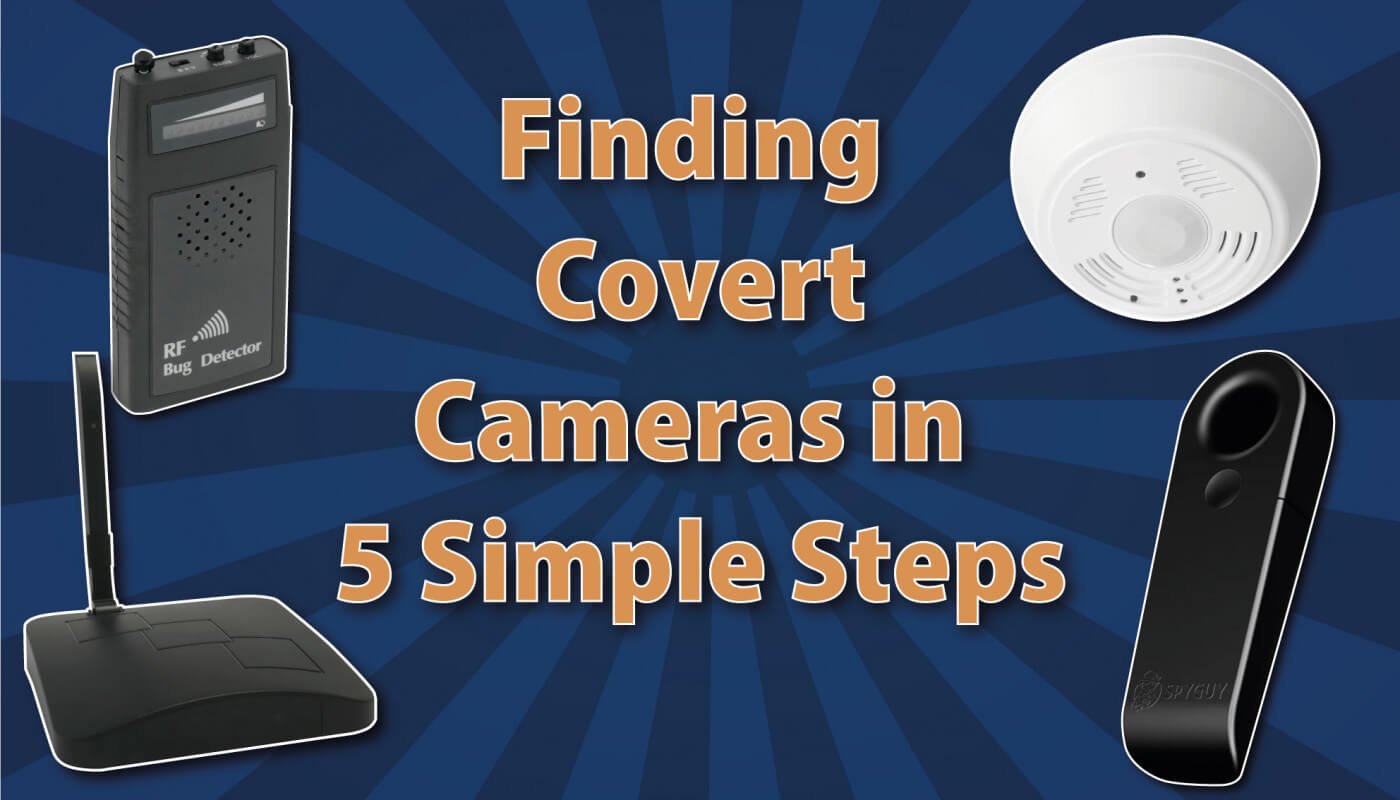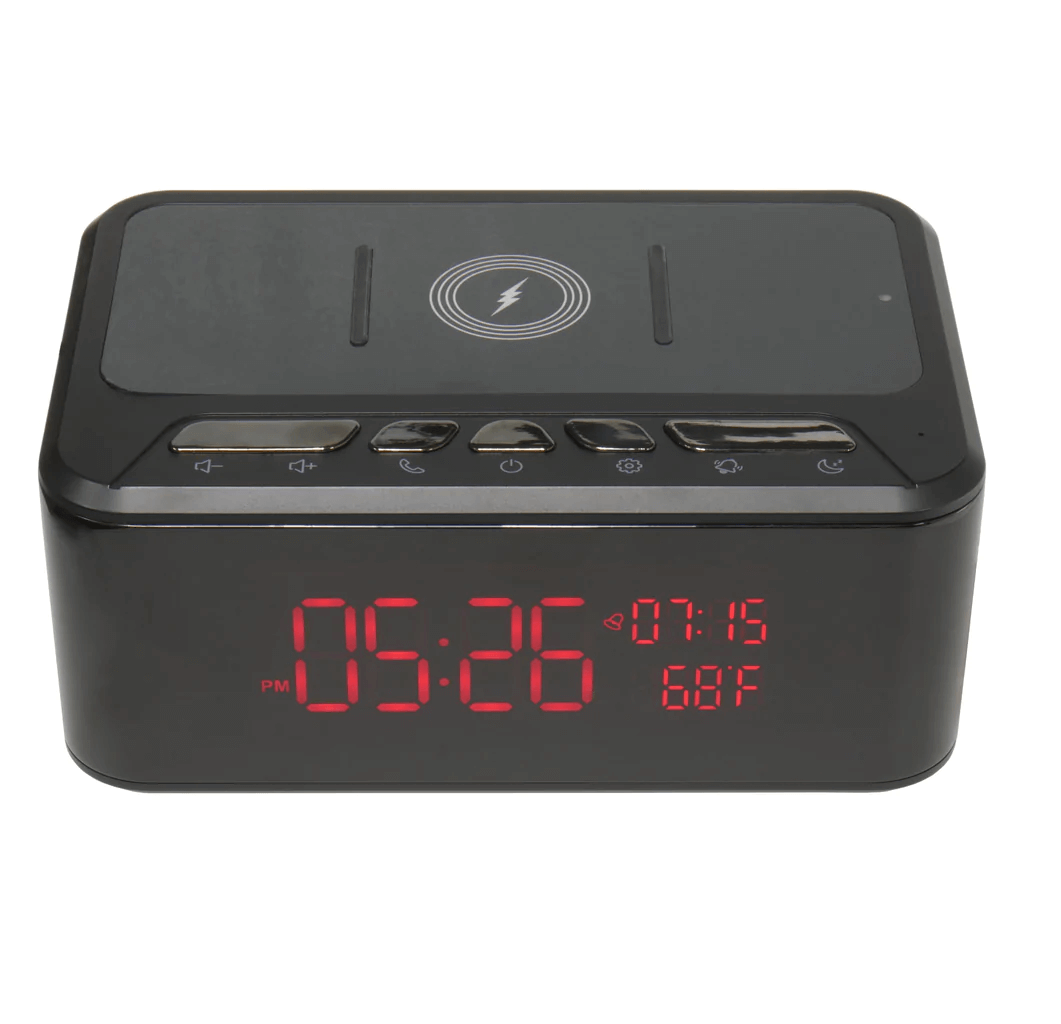Covert cameras are either tiny hidden cameras disguised as regular household items or they're so small that you can place them anywhere within view and people won't suspect that it's a camera.
And just when you thought that the only place you needed to look was in the smoke detector, we hate to break it to you, but you're going to have to expand your search because there are a large number of covert cameras available to the public.
From wireless hidden cameras inside homes to scouting cameras and covert cellular trail cameras used to spot wildlife. There is no shortage of hidden cameras out there that can be used to invade your privacy. It's important to take steps to make sure that your space is safe and secure.
The legality of covert cameras
Most cameras used for observation and monitoring are completely legal. In fact, CCTV cameras are so widespread that we barely notice them anymore. Legal issues start to arise when cameras are placed in areas where we would have a reasonable expectation of privacy. We all expect complete privacy and comfort when we're in the bathroom or bedroom, whether it's our own bathroom, in a hotel or airbnb or in a bathroom in a mall. Finding a camera in these places would be extremely violating and a massive breach of trust.
Unfortunately, just because it's illegal doesn’t mean that everyone is going to stick to the law. We have all heard horror stories about people finding cameras in hotels and Airbnbs, which is a massive invasion of privacy.
Earlier this year, we published an article about How to Find Hidden Cameras in your Airbnb.
We provided a wealth of useful information - from the DIY search methods you can use to the apps and equipment on the market. Sometimes, though, you just don't have the time to go through everything and do a detailed search.
It's why we decided to break down the methods into five simple steps.
So if you're asking yourself, "How do I find covert cameras" in an easy, quick way, look no further.
1. What objects do people use to hide covert cameras?
Covert cameras can be disguised as nearly anything, from clocks and smoke detectors to Bluetooth headsets and power outlets. Cameras need a small hole for the lens to look through so look for devices with small vents or holes. Think vents on smoke detectors, holes on speakers, or devices with audio. Pinhole lenses can be as small as 1 mm across and the view holes don’t need to be much larger than that so you'll need to inspect the object carefully.
Often covert cameras need an external power supply so pay attention to electronic devices, especially ones that have an unusual number of cables coming from the back. You might see a clock with a power supply connected. Most wall clocks run on battery power so that might be a clue that you have a camera looking at you. If you have a Wi-Fi router without a signal cable as well as a power cable, that can also be clue that you have a hidden camera on your hands.
2. Where is a good location to hide covert cameras?
Think about what you would do if you were hiding a camera in a room. You probably wouldn't put it facing a wall or in an area with an obstructed view. You’ll put it where it can get the widest view range. Look for items in a good vantage point of the room. Check for objects in corner shelving units, high up on walls, or pointed at areas of high traffic. Remember that furniture can be used to hide power cables so have a look at the back of cabinets and shelving units for any suspicious wires.
Pay particular attention to angles with a view of the bedroom or the bathroom. Usually, these are areas where you would have a reasonable expectation of privacy. If you do want to pursue legal action against the planter of the covert camera then these are places a court would find most objectionable.
3. Use a hidden camera detector
If you find an object that you think contains a covert camera then a great way to confirm your suspicions is to use a hidden camera detector. Our top-sellers are the Scout and the LM-8.
These devices are super easy to operate. All you have to do is turn off the lights in the room, point to the eyepiece where you suspect there’s a hidden camera, and press the little button at the front while looking through the eyepiece. The eyepiece contains a filter that lets you see the lens of any hidden camera as a bright red dot.
You can also use these hidden camera detectors to do a sweep of the room by moving the detector through different sections of the room while looking through the eyepiece. Move from a high-interest area to a low-interest area and pan from side to side with a focus on electrical appliances and outlets.
4. Use an RF detector
There are a couple of types of covert cameras. Ones that store video to a local SD card and ones that transmit footage so it can be viewed live on computers, mobile phones, and other devices. These cameras can be detected using Radio Frequency (RF) detectors like the SG-1 bug detector or the T-9 Speciality RF detector.
Not every camera can be detected using these bug detectors but they are great for finding cameras and recording devices quickly. The can also be used if there is shielding over the lens of the camera that can make the red reflection from a hidden camera detector hard to see.
Turn off all the obvious sources of radio and Wi-Fi waves, such as routers, mobile phones, and Wi-Fi dongles. Then switch on the device to maximum sensitivity and move the antenna around the room methodically, listening for the beep in your headphones and flashing LEDs when a signal is detected. When you have a general idea of where the device is, you can turn the sensitivity down and narrow your focus until you have identified the exact location of the covert camera.
5. What to do if you find a covert camera
If you find a hidden camera in your home or rental property, you have a few options. We don't recommend touching or moving the camera. It may be creepy and uncomfortable to find a camera, but you need to resist the urge to get rid of the covert camera immediately. Instead, pictures of the camera for evidence and contact local law enforcement so they can investigate the further.
If you find a camera in an Airbnb, you should contact the police and Airbnb customer care. Airbnb has no surveillance clause in its policies and will refund your money if you notice a covert camera watching you. More and more stories are emerging about hidden covert cameras being discovered in Airbnbs so we recommend conducting a thorough search of any Airbnb you use.
We hope these 5 steps are useful to you when looking for hidden cameras in the future. Most searches you conduct won't find any covert cameras, so take some comfort from that. But the peace of mind that you get from knowing you are going about your day unobserved cannot be beaten.




